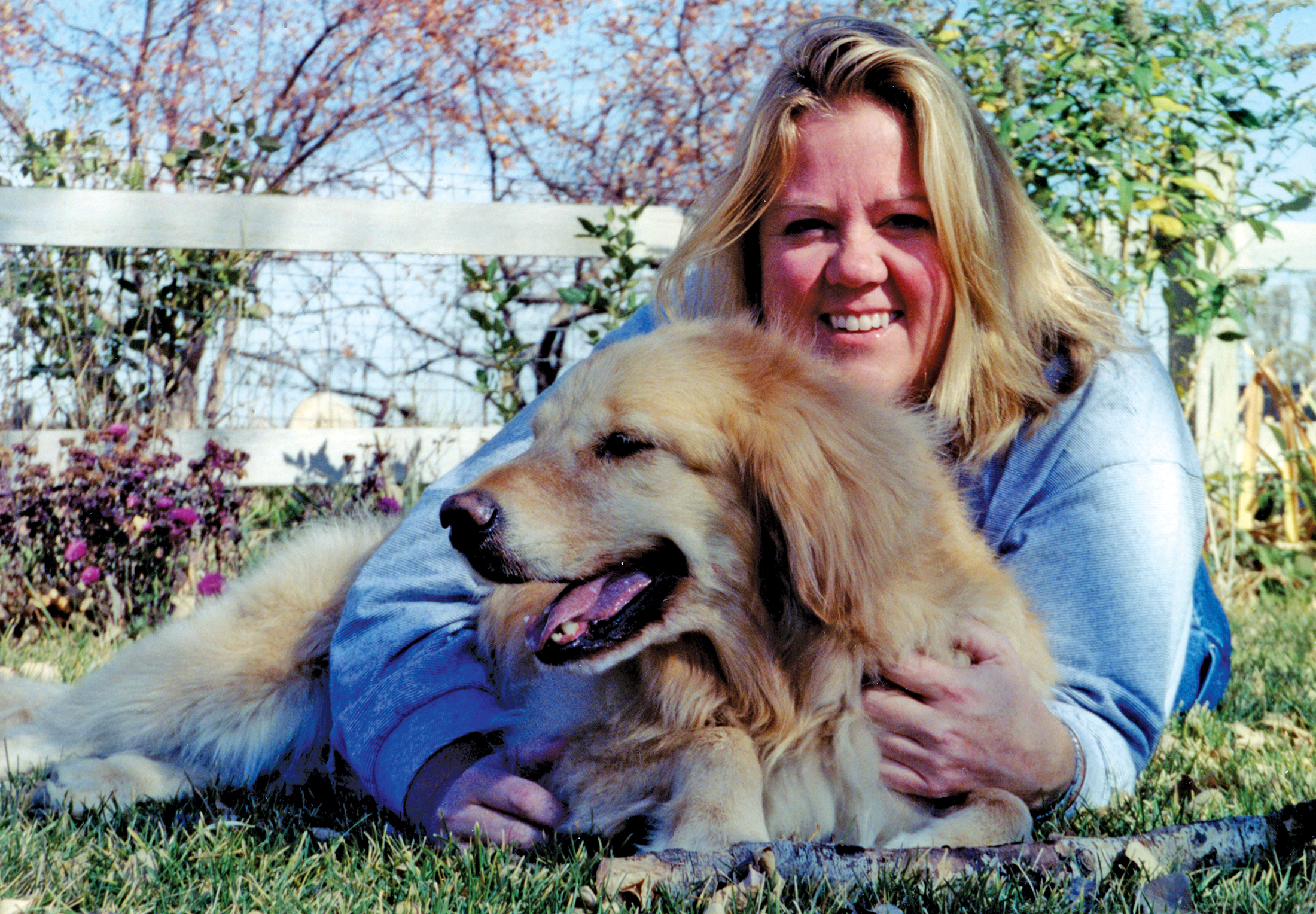ALUMNI SPOTLIGHT: WHEN FAT SHAMING PRECLUDES MEDICAL CARE

Laura Fraser’s elder sister Jan—here in a family photo with her dog—died of an aggressive cancer that went undiagnosed for more than a year, despite Jan’s pain. “Lose weight,” was the advice she received. (Photo courtesy Laura Fraser ’82)Laura Fraser ’82 writes about the bias against patients with obesity that she says is prevalent in the medical establishment—and might have prevented her sister from receiving lifesaving treatment in time for it to be effective.
“My sister’s cancer might have been diagnosed sooner—if doctors could have seen beyond her weight,” wrote Laura Fraser ’82 in an article that detailed how medical personnel ignored her sister Jan’s serious symptoms as the whining of “a fat, complaining older woman.” The article, published on Statnews, a site focused on medicine, health, and science journalism, received more social media shares, Fraser said, than anything else she has written. Fraser’s first book, Losing It: America’s Obsession with Weight and the Industry That Feeds on It (Random House, 1997), had given her a background knowledge of the biases that work against those with obesity and what she saw in her sister’s quest for help. “Sometimes I think fatness is the last bastion of acceptable prejudice in the United States,” she reflects.
Jan’s pain went unheeded by physicians until irrefutable evidence of dangerous blood chemistry levels, and not the office visits, finally got her medical attention. Told to go immediately to the ER, Jan underwent an MRI, which indicated an enormous mass. Two days later, surgery revealed an aggressive endometrial cancer that had already metastasized. Despite treatment, Jan died six months later.
“It’s beyond me how, three days after Jan’s appointment with a physician’s assistant, she could have had a volleyball-sized tumor taken out of her pelvis—and the PA hadn’t noticed it? This tells me that the people she saw didn’t even touch her in the exam. They just looked at her and said, ‘Fat woman! This must be some problem having to do with her obesity.’”
While the process of writing her first book certainly showed Fraser the frustrations that physicians feel in not being able to offer treatment likely to reverse weight gain and maintain it over a lifetime, Fraser also says that medical risks of carrying excess weight have been exaggerated.
“When I wrote my book, long-term studies of mortality and weight showed that if you added exercise to the equation, weight was a red herring. Thin people who didn’t exercise were three times more likely to die early than fat people who did exercise,” says Fraser. “Newer research shows that while exercise is still the key to health, fat may increase the chances of triggering certain cancers, though the mechanisms are poorly understood. What hasn’t changed is that people who are overweight deserve good medical treatment, like anyone else, and not fat shaming.”


